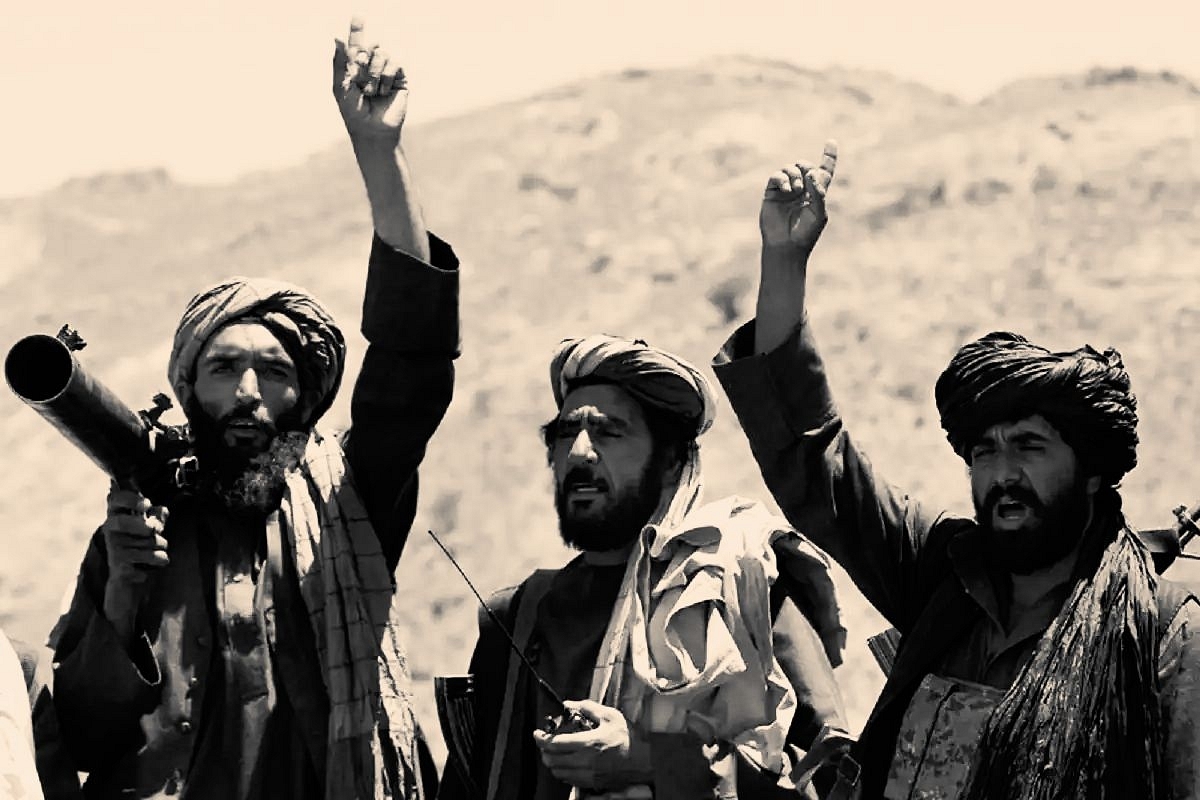Ideas
Triumph Of The Transnational Deobandis In The Indian Subcontinent
- The resurrected Taliban is not an Afghanistan-only phenomenon.
- In what Hindutvaites fondly call 'Akhand Bharat', the only transnational organisations that are working effectively belong to the Deobandi Islamists.

Taliban (Source: India.com)
In 1867, a decade after the first great rebellion of India against the British, two organisations were born in colonial India. One was Hindu and another Islamic.
Today, the 'Prarthana Samaj' is all but a memory but Deoband, the madrassa movement, has had global ramifications that are still being suffered. And the adherents or rather disciples of the worldview it disseminated decide the fate of a few millions. One organisation that pledges allegiance to the Deobandi worldview is the Taliban.
The name 'Taliban' has come to be associated with everything that is horrifying in a theocratic rule. It has become synonymous with a fundamentalist terror state. Ideological rivals in rhetorical flourish call each other ‘Taliban’: Marxist Taliban to Christian Taliban to Hindu Taliban.
However, like the word ‘fundamentalist’ was originally used for a specific Protestant movement, 'Taliban' too, has a historical specificity. Every Taliban is a Deobandi.
The Deobandi worldview does not recognise the borders of nation-states with respect to the believers. In this view, Muslims form a global Ummah instead. They are a Believers’ International. This makes it important that they should go to the parts of the world where believers are perceived to be oppressed and wage jihad.
The concept of 'oppression' is flexible. From implementation of a secular law that invalidates child marriages and triple talaq to actual physical confrontations – anything can be perceived as oppression of the true religion by the kuffar.
Once the Deobandi mindset is created using sophisticated and fundamentalist theological inputs, then, depending upon the tendency of the person, radicalisation follows and it can take the form of jihad through weapons or other means.
In 1921, there also arose the Barelvi movement in India which shared the core of the Deobandi worldview but considered itself even more Islamic than the latter. This resulted in competitive fundamentalist fatwas and would lead to stronger opposition to any secular world-views entering the thought-universe of either the Barelvis or Deobandis.
For example, a domestic intelligence report of the New York Police Department dated 27 May 2009 pointed out that the ‘Tablighi Jama’at had served as a recruiting ground for terrorists.’ Tariq Pervez, former Director-General of the National Counter Terrorism Authority (NACTA) in Pakistan pointed out how the movement creates the circumstances in which recruitment for Jihadist organisations becomes easier.
Today, in the nation-states of the larger Indian landmass which Hindutvaites affectionately call ‘Akhand Bharat’, the most active transnational networks belong to the organisations which share the pan-Islamist worldview of the Deobandis.
These include various Wahhabi movements like the Tawheedi Jammat. The Tamil Nadu Thowheed Jamath (TNTJ) for example, radicalises youths in Tamil Nadu. The National Thowheed Jammat (NTJ), a Sri Lankan organisation, had been implicated in the horrible Easter bombing. The TNTJ and TNJ are legally unrelated and independent entities – but connected through the core of theology.
Jamaat–e-Islami too shares its core worldview with the Deobandis and has strong networks across the national borders of the Indian subcontinent. Almost all Islamic radicalisation in post-independent India could be traced to the Jamaat-e-Islami, like in the case of terrorism in Kashmir.
In 2006, this writer had a chance to converse with an erudite Jamaat-e-Islami scholar, who sincerely believed that the Taliban had been intentionally victimised by a conspiracy of negative propaganda and that had they been allowed to run Afghanistan, it would have been an ideal Islamic state.
From Akhand Bharat to this
Islamic jihad has the ability to blur the national borders as jihad in Afghanistan and Syria showed. What should really worry India is that the Taliban has close allies in the country. And in the larger geo-strategic games, the West, despite its pretensions of being the guardian of democracy, would often tend more towards a monotheistic Taliban regime than a pagan democracy like India. Thus, the same US elements which weave atrocity stories about India would speak of the need to engage with Taliban in Afghanistan.
Today, the Deoband family of transnational Islamist organisations appear to be moving towards the goal of making the entire larger Indian landmass an Islamic territory. The challenge thus, is not only against Islamic fanatics, but history itself.
Introducing ElectionsHQ + 50 Ground Reports Project
The 2024 elections might seem easy to guess, but there are some important questions that shouldn't be missed.
Do freebies still sway voters? Do people prioritise infrastructure when voting? How will Punjab vote?
The answers to these questions provide great insights into where we, as a country, are headed in the years to come.
Swarajya is starting a project with an aim to do 50 solid ground stories and a smart commentary service on WhatsApp, a one-of-a-kind. We'd love your support during this election season.
Click below to contribute.
Latest